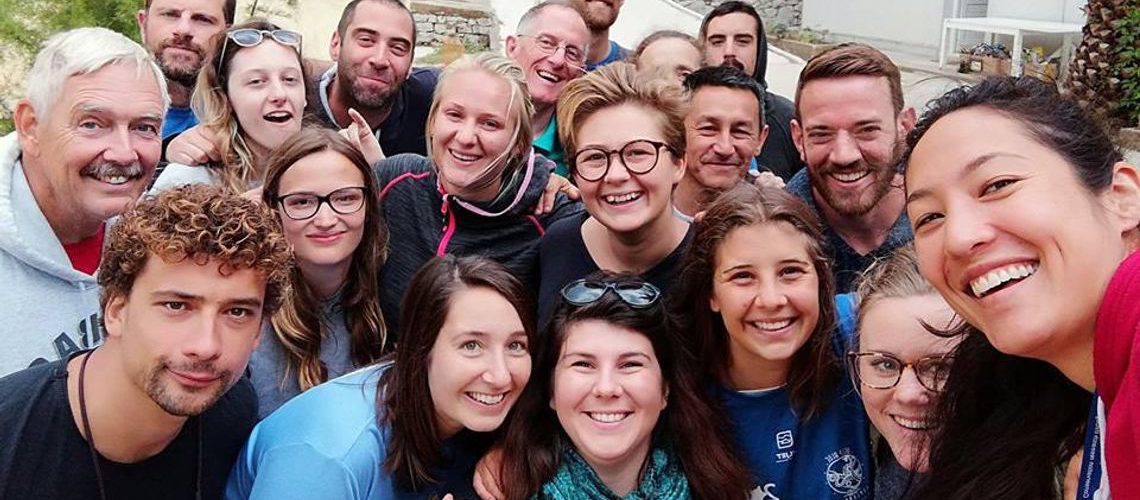
by: Carolina DelaHoz Schilling
The summer season for 20000 Leagues started off with some underwater science and marine education for international students coming to Croatia through Operation Wallacea, one of our partner organizations. Base camp was established in the national park on the island of Mljet, at an old military base, where there would be enough space to accommodate around 30 students weekly and 20 staff members, from cooks, diving instructors and scientists to managers. After spending the first week lifting, carrying and moving about a million things (close estimation) as well as trying to build a diving shed from scratch and feeling like construction workers, the team had definitely bonded over sore muscles and tired feet.

The first group of students arrived just in time to see everything in perfect shape and with our science team eager to start collecting data and imparting some wisdom. The main research areas we tackled were the monitoring of the seagrass, Posidonia oceanica, and the giant noble pen shell, Pinna nobilis, both endemic to the Mediterranean Sea and heavily affected by human activity. Both activities involved extensive scuba diving and the use of specific scientific methodologies, which would allow us to collect valuable and accurate data on relative abundance. Students that were already qualified scuba divers could join into these activities and get a taste of the life of a marine biologist.

However, students that preferred to stay on the sea surface also got plenty of hands-on experience by assisting us with our shallow water sea urchin and fish surveys and cleaning and monitoring beach litter from some of the most heavily polluted areas of the island. Collected trash was classified and sorted into different categories and it comes as no surprise that the most commonly found items included plastic bottles, bottle caps and other single use plastic items. Rather than seeing posts on plastic pollution online, collectively gathering over thirty big bags full of ocean trash with their own hands on a 30 meter beach had a very visible impact on our students.

Other activities included marine ID workshops, where students would learn some basic marine organism identification skills, as well as receiving lectures on an array of important topics such as Adriatic ecology, biodiversity, marine invasive species, fisheries and research methodologies. With a schedule this packed, time slipped through our fingers and before we were fully aware of the end, 8 amazing weeks had gone by and over 200 very engaged and motivated students had returned to their homes with a new perspective on the oceans and the conservation of its different habitats. But not just the students left with a new set of skills and some great memories. So did we. As a marine biologist, a lot of the work you do doesn’t feel like work, but it is rewarding in so many ways. In the like-minded people that you meet and work with. In the way you witness the influence you can have on other people by teaching them about ocean issues. In all the amazing creatures you get to see in their natural underwater habitat. In how you contribute towards a better understanding and hopefully conservation of the sea and its inhabitants. This is why we do what we do.

About the author : Carolina is a volunteer from Spain who came to the organization under the EVS (European voluntary service) framework to assist with our research and educational activities in 2018. She completed a BSc in Biology in 2015 and has since then focused on gaining experience in the marine biology sector. She has worked with several NGO’s focused on shark research and outreach and became a PADI Divemaster in 2016. She has incorporated an educational project on sharks into our outreach program.


EVS (now ESS) is a part of Erasmus + Programme. Learn more, travel more, VOLUNTEER more!
2025 © Društvo istraživača mora 20000 milja. Sva prava pridržana.
